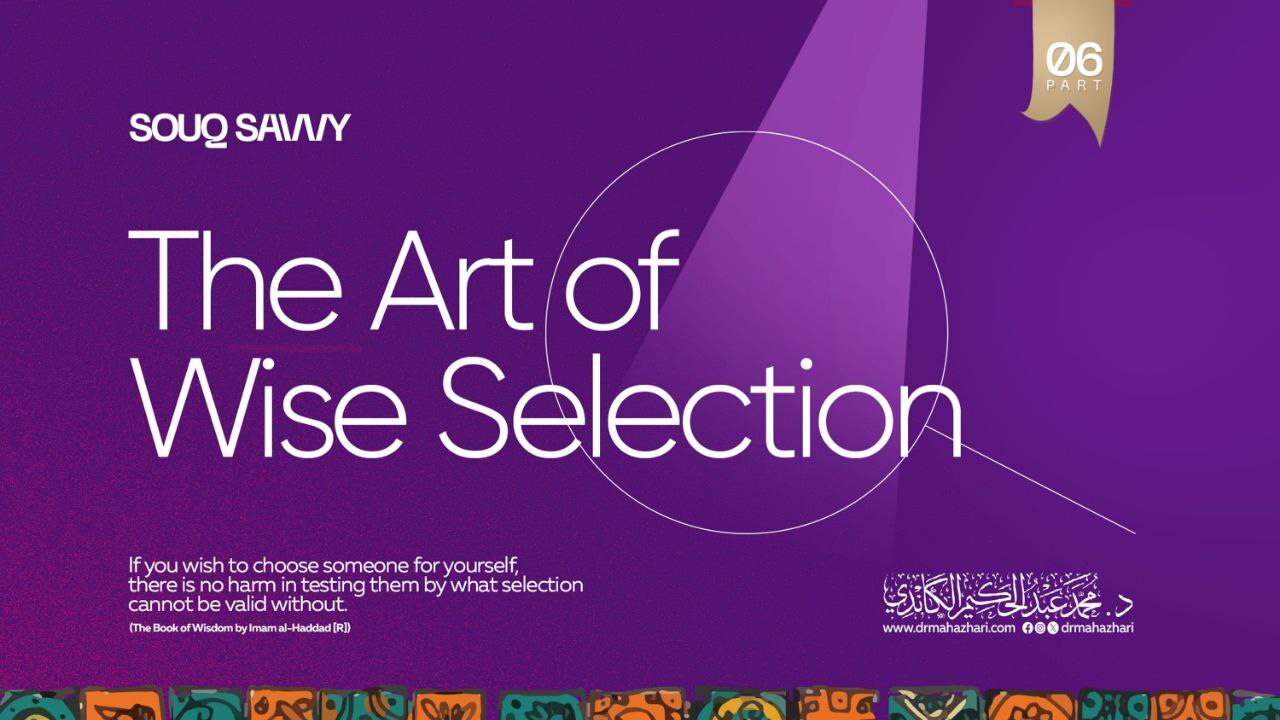Part: 6
The Art of Wise Selection
Dr. MAH Azhari

If you wish to choose someone for yourself, there is no harm in testing them by what selection cannot be valid without.
(The Book of Wisdom by Imam al-Haddad [R])
The principle of careful selection and due diligence is crucial in both effective management and Islamic teachings. Before entrusting responsibilities, strategic selection requires clear, non-negotiable criteria. Chosen individuals must not only possess the necessary skills but also align with organizational goals. This involves evaluating abilities, resilience, and problem-solving aptitude through practical assessments, ensuring they can meet role demands. Importantly, testing also assesses adaptability, vital for navigating future challenges. This principle is mirrored in modern management through probationary periods, offering a practical test of a new hire's suitability and alignment with expectations.
Real-life examples reinforce the necessity of such principles. In sports, for instance, rigorous trials are conducted to select players who not only excel in their individual roles but also demonstrate teamwork, resilience, and the ability to handle pressure. Such processes ensure that the team is composed of individuals who can work collectively toward success. Another example can be found in educational institutions that assess students’ knowledge and skills through exams and interviews before granting admissions, ensuring they select candidates capable of thriving in their academic environments.
From an Islamic perspective, this principle is rooted in the Quran and Sunnah. The Quran commands, “Indeed, Allah commands you to render trusts to whom they are due and when you judge between people to judge with justice. Excellent is that which Allah instructs you. Indeed, Allah is ever Hearing and Seeing” (Surah An-Nisa: 58), emphasizing merit-based appointments and fulfilling amanah (trusts). This verse implicitly supports ikhtibar (testing) as a means of ensuring deserving recipients of trust.
Ikhtibar (testing) is fundamental to Islamic selection principles. The Quran highlights its role in revealing character and capabilities: "And We will surely test you with something of fear and hunger and loss of wealth and lives and fruits, but give good tidings to the patient" (2:155). The Hadith, "The believer is constantly tested" (Tirmidhi), reinforces its importance. Ikhtibar encompasses trials, skill assessment, and trustworthiness evaluation, providing a comprehensive framework for selecting suitable individuals.The modern practice of probationary periods serves as a practical application of ikhtibar, allowing for a real-world assessment of an individual's skills, adaptability, and cultural fit within the organization.
By adhering to these principles of thorough testing and evaluation, including probationary periods, leaders can build successful and just teams and systems. The Islamic emphasis on ikhtibar, combined with due diligence, provides a strong foundation for selecting individuals who are competent, trustworthy, and aligned with values like integrity, accountability, and justice.
